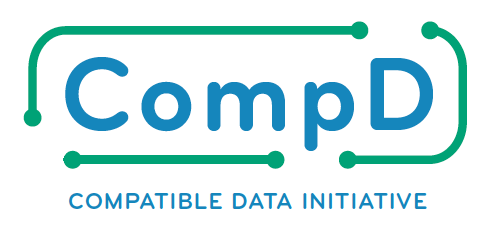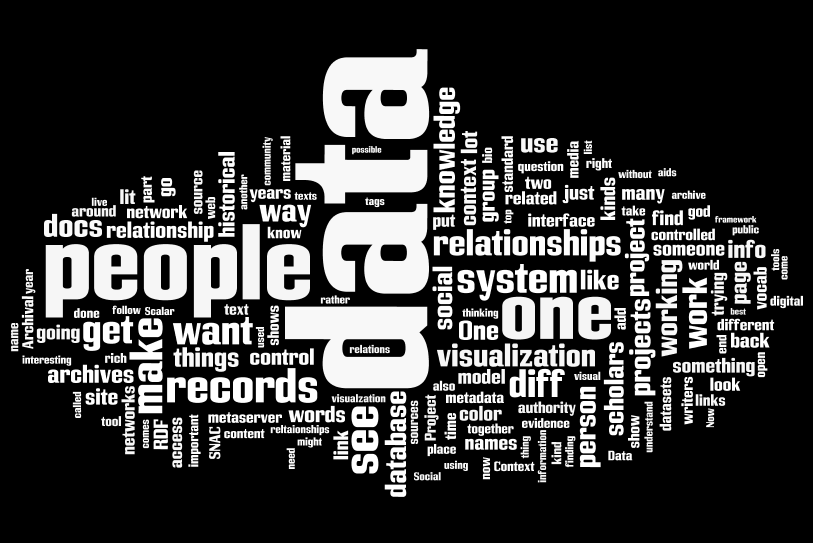 Still Water‘s archival tools were featured in a keynote at the Compatible Data conference organized by Micki McGee at Fordham University in New York on 24 September. This conference gathered data mavens from the New York Public Library, Columbia and Brown universities, and other prominent collections with the goal of finding a metadata Esperanto in the current Tower of Babel of competing standards.
Still Water‘s archival tools were featured in a keynote at the Compatible Data conference organized by Micki McGee at Fordham University in New York on 24 September. This conference gathered data mavens from the New York Public Library, Columbia and Brown universities, and other prominent collections with the goal of finding a metadata Esperanto in the current Tower of Babel of competing standards.
Still Water Senior Researcher Craig Dietrich, who teaches at USC’s Institute for Multimedia Literacy, presented the RDF-based authoring tool Scalar, which easily interlinks videos and other resources across published articles and preserves metadata like attribution and titles.
Meanwhile, Joline Blais and Jon Ippolito spoke about the Metaserver, a lightweight protocol created by Forging the Future that connects disparate archives while respecting differences–a sort of eHarmony for cultural artifacts.
 The Metaserver aims to achieve similar goals as harvester-based services, but because it requires only a minimal number of metadata fields, it can interlink collections that aren’t organized according to a single standard such as OCLC. This model of sharing while respecting differences encourages links among institutions of different technical strength and disciplinary focus; given nothing more than a common “keyword” or “creator” tag, the Metaserver can associate records in the Django-based Rhizome artBase to records in the Franklin Furnace archive’s FileMaker database, and vice versa.
The Metaserver aims to achieve similar goals as harvester-based services, but because it requires only a minimal number of metadata fields, it can interlink collections that aren’t organized according to a single standard such as OCLC. This model of sharing while respecting differences encourages links among institutions of different technical strength and disciplinary focus; given nothing more than a common “keyword” or “creator” tag, the Metaserver can associate records in the Django-based Rhizome artBase to records in the Franklin Furnace archive’s FileMaker database, and vice versa.
Both Scalar and the Metaserver can point to resources without needing to create a local copy, meaning they can outsource the labor of updating references to the various collections to those curators who are in a better position to do so. And both are free and open-source software.
For more information about either tool, please contact Craig Dietrich or Jon Ippolito.

Pingback: Compatible Data Initiative Highlights Workflows between Archives, Linked Data, and Authors | The Alliance for Networking Visual Culture
Pingback: Vectors Journal Blog: Compatible Data Initiative Highlights Workflows between Archives, Linked Data, and Authors